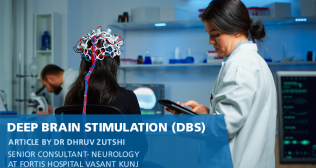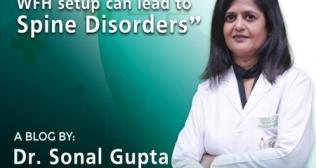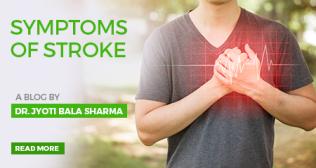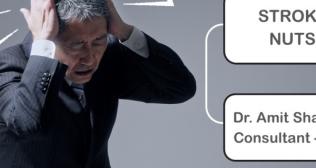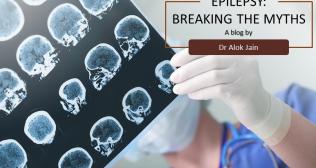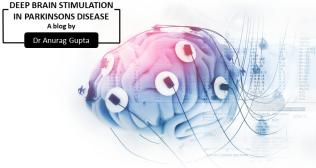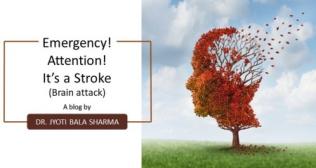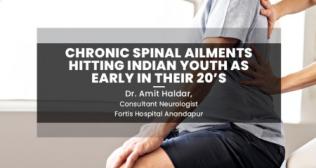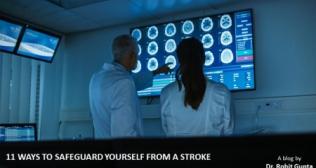
Dementia – Causes, Risk Factors, Symptoms & Treatment
Dementia is a term for several diseases that affect memory, thinking, judgement, reasoning and the ability to perform daily activities. In order to be considered dementia these issues must be severe enough to interfere with a person's independence and daily activities.
The illness gets worse over time. It mainly affects older people but not all people will get it as they age.
Dementia is a syndrome that can be caused by a number of diseases which over time destroy nerve cells and damage the brain, typically leading to deterioration in cognitive function (i.e. the ability to process thought) beyond what might be considered normal for aging. Alzheimer's disease is present in approximately 60 to 80 percent of all cases of dementia.
Causes of Dementia
Dementia can be caused by several different brain disorders. These include:
Alzheimer's disease — Alzheimer's disease is the most common cause of dementia
Other causes of dementia are
- Vascular dementia
- Frontotemporal dementia
- Dementia with Lewy Body
- Parkinson's disease dementia
Risk Factors for Dementia
- Age (more common in those 65 or older)
- High blood pressure (hypertension)
- High blood sugar (diabetes)
- Being overweight or obese
- Smoking
- Drinking too much alcohol
- Being physically inactive
- Being socially isolated
- Depression
- Low educational attainment
- Cognitive inactivity
- Air pollution
Symptoms of Dementia:
Early signs and symptoms are:
- Forgetting things or recent events
- Losing or misplacing things
- Getting lost when walking or driving
- Being confused, even in familiar places
- Losing track of time
- Difficulties solving problems or making decisions
- Problems following conversations or trouble finding words
- Difficulties performing familiar tasks
- Misjudging distances to objects visually
Common changes in mood and behaviour include:
- Feeling anxious, sad, or angry about memory loss
- Personality changes
- Inappropriate behaviour
- Withdrawal from work or social activities
- Being less interested in other people’s emotion
Advanced stage of dementia
- Increased anger or hostility, sometimes aggressive behaviour; alternatively, some people become depressed or exhibit little interest in their surroundings (called "apathy")
- Sleep problems
- Hallucinations and/or delusions
- Disorientation
- Needing help with basic tasks (such as eating, bathing, and dressing)
- Incontinence (difficulty controlling the bladder and/or bowels
Treatment for Dementia:
There is no cure for dementia, but a lot can be done to support both people living with the illness and those who care for them.
Some medications can help manage dementia symptoms:
- Cholinesterase inhibitors like donepezil are used to treat Alzheimer's disease
- NMDA receptor antagonists like memantine are used for severe Alzheimer's disease and vascular dementia
- Medicines to control blood pressure and cholesterol can prevent additional damage to the brain due to vascular dementia
- Selective serotonin reuptake inhibitors (SSRIs) can help with severe symptoms of depression in people living with dementia if lifestyle and social changes don’t work, but these should not be the first option
If people living with dementia are at risk of hurting themselves or others, medicines like haloperidol and risperidone can help, but these should never be used as the first treatment
Care Tips for Dementia Patients:
For those diagnosed with dementia, there are things that can help manage symptoms:
- Stay physically active
- Eat healthily
- Stop smoking and drinking alcohol
- Keep a fixed routine every day
- Place a calendar and wall clock in the room
- Get regular check-ups with your doctor, get eyesight hearing checked and corrected regularly
- Write down everyday tasks and appointments to help you remember important things
- Keep up your hobbies and do things that you enjoy
- Try new ways to keep your mind active
- Spend time with friends and family and engage in community life
- Wear an ID band or bracelet with address and phone numbers all the time
- Reach out to family and friends for help
- Talk to people you know about how they can help you
- Join a local support group
Prevention of Dementia:
- Stay physically active, socially connected and mentally engaged
- Quit smoking
- Avoid alcohol
- Maintain optimal weight
- Eat healthy
- Maintain healthy blood pressure cholesterol and blood sugar level
Categories
Clear allMeet the doctor

- Neurology | Neurology
-
26 Years
-
1200







